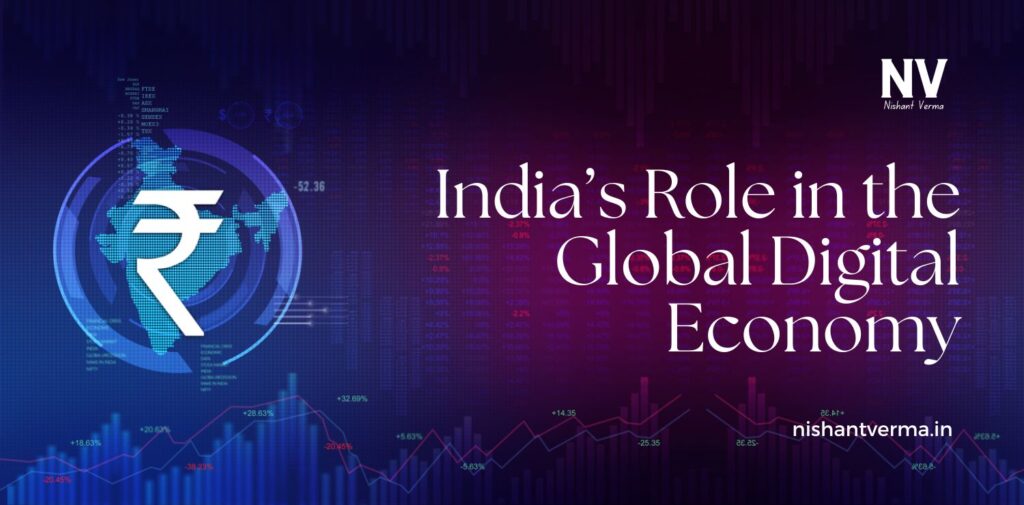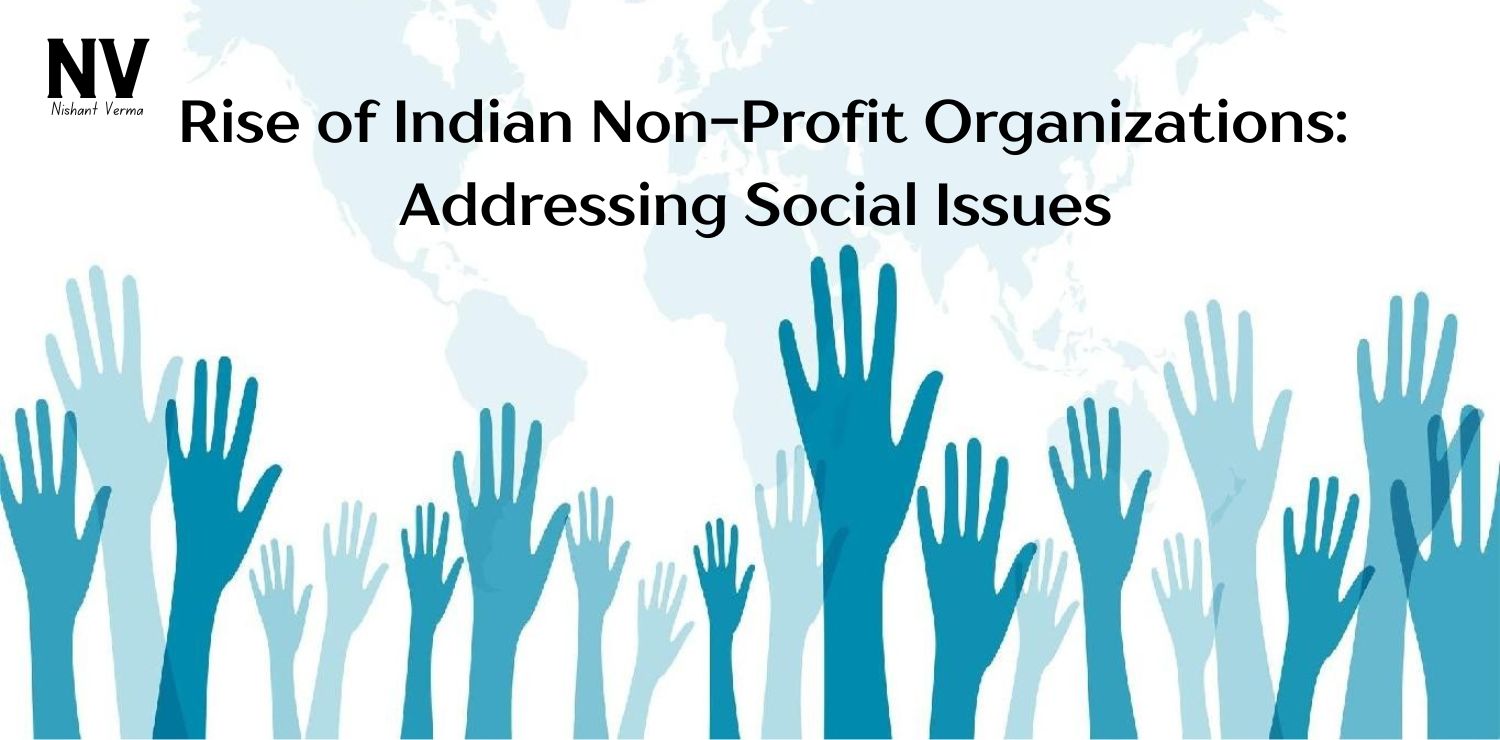The digital economy is a rapidly growing force that is reshaping industries, markets, and everyday life across the globe. As the world becomes increasingly connected through the internet, India is playing an important role in driving this transformation. With its large and young population, booming tech industry, and expanding digital infrastructure, India has emerged as a key player in the global digital economy. This article explores how India contributes to the digital economy, the opportunities it offers, and the challenges it faces.
India’s Growing Digital Infrastructure
One of the primary drivers of India role in the global digital economy is its expanding digital infrastructure. Over the past few years, India has made significant investments in building a strong digital framework. The government’s Digital India initiative, launched in 2015, aims to improve online infrastructure, increase internet access, and promote digital literacy across the country. This initiative has led to a dramatic rise in internet penetration, with millions of people gaining access to affordable smartphones and high-speed internet.
In rural areas, the government has worked to build digital infrastructure, bringing connectivity to previously underserved regions. This is important because a connected India can actively participate in the digital economy. With millions of new users coming online every year, India’s digital economy is poised for rapid growth. This growth is not just about consumption of digital products but also about creating new opportunities for business, entrepreneurship, and innovation.

India as a Global Hub for IT Services and Outsourcing
India has long been recognized as a global leader in IT services and outsourcing. The country’s vast pool of highly skilled engineers, software developers, and IT professionals has made it a preferred destination for outsourcing work, particularly for businesses in the United States, Europe, and other parts of the world. Indian companies like Infosys, TCS (Tata Consultancy Services), Wipro, and HCL Technologies have become household names in the global IT sector.
These companies provide a wide range of services, from software development and application management to cloud computing and artificial intelligence. By offering cost-effective and skilled labor, India has become a key player in the global digital economy. As businesses around the world increasingly rely on digital solutions, India’s IT industry continues to expand, providing opportunities for both Indian professionals and global companies seeking technology expertise.
Digital Startups and Innovation
India’s digital economy is also being fueled by a rapidly growing startup ecosystem. Over the past decade, India has become one of the largest hubs for technology startups in the world. Cities like Bengaluru, Hyderabad, Pune, and Gurugram have emerged as global centers for innovation, where new ideas and products are being developed to meet the demands of both the Indian and global markets.
Startups in India are leading the way in several emerging technologies, including artificial intelligence (AI), blockchain, fintech, e-commerce, and edtech. Companies like Flipkart, Ola, Paytm, Swiggy, and Zomato have made a significant impact, not only in India but also in international markets. The success of these startups has attracted major global investors and venture capital firms, making India a key player in the global innovation ecosystem.
In addition to homegrown startups, many multinational companies have set up research and development centers in India to tap into the country’s tech talent. India’s role as a hub for innovation is crucial in driving the global digital economy forward, with Indian startups increasingly playing a significant role in the global supply chain of new technologies and services.

E-commerce and Digital Payments: Changing the Global Landscape
India’s e-commerce and digital payments sectors have witnessed a massive transformation in recent years. The rise of online shopping platforms like Amazon, Flipkart, and Snapdeal has changed the way people in India buy goods and services. As internet penetration continues to rise, more and more Indians are shopping online, creating a massive market for global e-commerce players.
India’s growing middle class, combined with its vast population, offers a huge opportunity for businesses worldwide. International brands are tapping into this market, establishing online platforms and retail partnerships to reach Indian consumers. This shift to online shopping has not only boosted India’s digital economy but has also created a dynamic marketplace that connects global suppliers with Indian buyers.
Alongside e-commerce, the digital payments sector has experienced exponential growth in India. With the launch of UPI (Unified Payments Interface) and the adoption of mobile wallets like Paytm, PhonePe, and Google Pay, digital transactions have become a part of everyday life for millions of Indians. The government’s push for a cashless economy, coupled with initiatives like the Jan Dhan Yojana (financial inclusion program), has made digital payments more accessible to the masses.
India’s digital payments industry is now a key player in the global digital economy. It is not just transforming the way Indians make transactions but also contributing to the global shift toward cashless societies. The growth of digital payments in India is a model that other developing countries are looking to replicate, making India a leader in the global digital payments space.
India’s Role in Shaping Global Tech Policy and Regulation
As India’s digital economy continues to grow, the country is also playing an increasingly important role in shaping global technology policy and regulation. India’s large and growing market makes it an influential player when it comes to setting the rules and standards that govern the digital economy. For example, India’s policies on data privacy, cybersecurity, and e-commerce have a direct impact on both domestic and international businesses.
The Indian government’s stance on data privacy and regulation is particularly important. In recent years, India has introduced new rules aimed at regulating data usage and protecting citizens’ privacy. The Personal Data Protection Bill and the Draft E-commerce Policy are examples of how India is striving to create a more secure and regulated digital environment. As a major market for tech companies, India’s regulations will likely influence global norms in areas like data security, online content moderation, and digital taxation.
Additionally, India is actively participating in international discussions on the future of the internet and digital trade. India’s engagement in global forums like the World Trade Organization (WTO), G20, and United Nations is shaping the direction of global tech policy, particularly as countries work together to address issues like digital divide, cybersecurity, and cross-border data flow.

Challenges and Opportunities for India in the Global Digital Economy
While India role in the global digital economy presents numerous opportunities, there are also several challenges that need to be addressed. One of the biggest challenges is ensuring that the benefits of the digital economy reach all segments of society. Although urban areas are witnessing rapid growth in digital adoption, rural regions still face barriers such as limited internet connectivity, low digital literacy, and a lack of affordable devices.
Addressing these challenges requires continued investment in infrastructure, education, and digital literacy programs. Ensuring that everyone in India has access to the internet and the skills to use it is crucial for making the digital economy inclusive and equitable.
Another challenge is ensuring data privacy and security in a rapidly digitizing world. As more people come online and more data is generated, protecting citizens’ personal information from cyber threats becomes a priority. Strengthening cybersecurity frameworks and enacting laws that safeguard citizens’ privacy will be essential for India to maintain trust in its digital economy.
Despite these challenges, the opportunities for India to grow as a global leader in the digital economy are vast. With continued investment in digital infrastructure, innovation, and skill development, India has the potential to become one of the world’s leading digital economies.
Conclusion: India Role in the Global Digital Economy
India role in the global digital economy is growing rapidly, driven by its expanding digital infrastructure, thriving tech industry, and dynamic startup ecosystem. The country’s increasing participation in e-commerce, digital payments, and technology innovation positions it as a key player in the future of the global digital economy. However, to fully realize this potential, India must continue to invest in infrastructure, education, and regulation to ensure that the digital economy benefits all citizens. By overcoming challenges and seizing opportunities, India can solidify its place as a leader in the global digital landscape.




